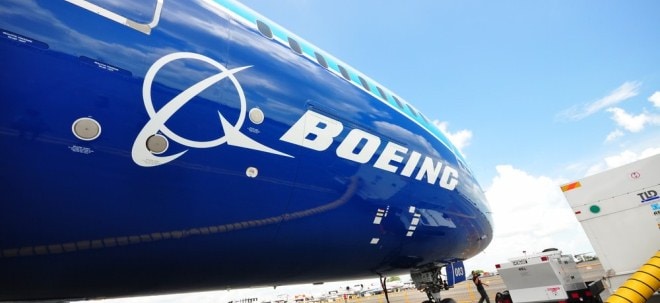Hydrothermal Carbonization Market to Reach USD 2019 Million by 2031: Key Trends and Opportunities | Valuates Reports
BANGALORE, India, May 14, 2025 /PRNewswire/ -- Hydrothermal Carbonization (HTC) Market is Segmented by Type (Sewage Sludge, Food Waste, Animal Manure, Macroalgae), by Application (Fuel, Water Treatment, Soil Amendment, Supercapacitor, Energy Storage).

The Hydrothermal Carbonization (HTC) Market was valued at USD 1014 Million in the year 2024 and is projected to reach a revised size of USD 2019 Million by 2031, growing at a CAGR of 10.5% during the forecast period.
Claim Your Free Report: https://reports.valuates.com/request/sample/QYRE-Auto-8V13513/Global_Hydrothermal_Carbonization_HTC_Market
Major Factors Driving the Growth of Hydrothermal Carbonization Market:
The hydrothermal carbonization market is gaining momentum as a sustainable solution for organic waste management and bioenergy production. Its ability to process high-moisture biomass without the need for drying distinguishes it from conventional thermal technologies. The market is driven by factors such as increasing waste generation, growing demand for renewable energy, and regulatory pressure for sustainable waste treatment. Applications across agriculture, energy, industry, and municipal services continue to expand, supported by innovation and policy alignment. As awareness and infrastructure investments increase, hydrothermal carbonization is poised to become a vital component of the global green transition and resource recovery strategy.
Unlock Insights: View Full Report Now! https://reports.valuates.com/market-reports/QYRE-Auto-8V13513/global-hydrothermal-carbonization-htc
TRENDS INFLUENCING THE GROWTH OF THE HYDROTHERMAL CARBONIZATION MARKET:
The increasing generation of food waste from households, restaurants, and food processing units is playing a significant role in driving the growth of the hydrothermal carbonization market. Food waste contains a high proportion of organic content and moisture, making it an ideal feedstock for hydrothermal carbonization (HTC). Governments and municipalities are promoting sustainable waste management practices due to the environmental concerns associated with landfilling and incineration. HTC technology enables the conversion of food waste into hydrochar, a valuable carbon-rich product used for energy generation and soil enrichment. Moreover, rising awareness about circular economy models and bioenergy production is encouraging the deployment of HTC facilities. These factors, coupled with financial incentives and stricter regulations against traditional disposal methods, are accelerating market demand for hydrothermal carbonization solutions centered around food waste management.
The disposal of sewage sludge has become a major environmental challenge for urban centers and municipalities, leading to a growing interest in hydrothermal carbonization as a sustainable solution. Sewage sludge is rich in organic matter and moisture content, making it highly compatible with HTC processes. The ability of HTC to reduce pathogens, odor, and volume while recovering energy and nutrients is gaining traction among wastewater treatment facilities. Additionally, regulations limiting land application and incineration of sludge are forcing stakeholders to explore alternative treatment methods. HTC offers a closed-loop solution by converting sludge into hydrochar, which can be used as a fuel or soil conditioner. The cost-efficiency, low emissions, and scalability of HTC for sewage sludge treatment are major factors propelling the adoption of this technology and thereby contributing to the growth of the global hydrothermal carbonization market.
Hydrochar, a product of hydrothermal carbonization, is increasingly being recognized for its benefits as a soil amendment, which is significantly driving the hydrothermal carbonization market. Soil degradation due to over-farming and chemical use has created a pressing need for sustainable solutions to enhance soil fertility and structure. Hydrochar improves water retention, nutrient availability, and microbial activity in the soil, contributing to better crop yields and sustainable farming practices. Farmers, especially in regions affected by drought and poor soil conditions, are turning to hydrochar as a cost-effective and eco-friendly option. Additionally, regulatory support for sustainable agriculture and increasing awareness of carbon sequestration benefits of hydrochar are creating new demand in the agricultural sector. This expanding application scope in soil improvement is solidifying hydrothermal carbonization as a key technology in environmental and agricultural innovation.
Urban population growth is resulting in increasing amounts of municipal solid waste, pushing city planners and waste management authorities to seek more efficient disposal technologies. Hydrothermal carbonization stands out as a promising solution due to its ability to process wet biomass without pre-drying. This makes it ideal for handling the organic portion of municipal solid waste, including kitchen and garden waste. HTC's capacity to reduce waste volume while producing valuable hydrochar aligns with sustainability goals of many smart cities. The dual benefits of waste reduction and energy recovery are appealing to urban administrations under pressure to reduce landfill dependency. As cities worldwide continue to struggle with waste management, the demand for scalable and sustainable HTC solutions is expected to grow steadily.
Environmental regulations and waste management policies across regions are increasingly favoring technologies that promote resource recovery and reduce greenhouse gas emissions. In this context, hydrothermal carbonization benefits from a supportive policy landscape that includes subsidies, tax incentives, and research grants. Governments in Europe, Asia, and North America are encouraging public-private partnerships and pilot programs to test and scale up HTC solutions. Additionally, international climate agreements and national sustainability targets are promoting low-emission technologies like HTC. These supportive frameworks are not only driving the commercialization of hydrothermal carbonization but also facilitating its integration into municipal and industrial waste management systems. As policy pressure intensifies, the HTC market stands to gain significant momentum.
Industries such as food processing, paper, and bio-refineries generate large volumes of organic waste with high moisture content. Traditional thermal conversion technologies often require energy-intensive drying, making them less suitable. Hydrothermal carbonization, on the other hand, operates efficiently with wet biomass, offering industries a cost-effective and eco-friendly waste-to-resource solution. The ability of HTC to produce hydrochar, which can be used for onsite energy generation or sold as a commodity, presents a revenue-generating opportunity. Industrial players are increasingly exploring HTC to meet internal sustainability goals and reduce waste disposal costs. This shift towards integrated waste valorization practices in industrial settings is bolstering the hydrothermal carbonization market.
Wastewater treatment facilities are increasingly exploring HTC as an alternative to conventional sludge drying or incineration. The high moisture content of sludge is a challenge for traditional methods but is ideal for hydrothermal processing. HTC reduces sludge volume and weight, lowers disposal costs, and neutralizes pathogens. The hydrochar generated from sludge can be used as a fertilizer or energy source, adding value to an otherwise costly waste stream. As utilities seek to modernize their infrastructure and reduce carbon footprints, HTC presents a technologically and economically viable solution. Growing investment in wastewater infrastructure modernization is expected to accelerate HTC adoption in this sector.
Claim Yours Now! https://reports.valuates.com/api/directpaytoken?rcode=QYRE-Auto-8V13513&lic=single-user
HYDROTHERMAL CARBONIZATION MARKET SHARE
Europe is a leader in adoption due to stringent environmental regulations, strong circular economy initiatives, and municipal support for waste-to-energy solutions.
North America is witnessing gradual growth driven by industrial applications and regulatory incentives.
In Asia-Pacific, countries like China and India are emerging as potential growth hubs due to the volume of organic waste and increasing government interest in decentralized waste treatment.
Key Companies:
- HTCycle
- Ingelia
- Terranova
- C-Green
- Antaco
- UNIWASTEC
- CPL Industries
- Somax Bioenergy
- Kinava
- EIT InnoEnergy
- DBFZ
Purchase Chapters: https://reports.valuates.com/request/chaptercost/QYRE-Auto-8V13513/Global_Hydrothermal_Carbonization_HTC_Market
SUBSCRIPTION
We have introduced a tailor-made subscription for our customers. Please leave a note in the Comment Section to know about our subscription plans.
DISCOVER MORE INSIGHTS: EXPLORE SIMILAR REPORTS!
- Hydrothermal Treatment Market was valued at USD 630 Million in the year 2024 and is projected to reach a revised size of USD 1413 Million by 2031, growing at a CAGR of 12.4% during the forecast period.
- High Pressure Hydrothermal Reactor Market
- Cereal Hydrothermal Cooking Plants Market
- Hydrothermal Autoclave Market
- Explosion-proof Hydrothermal Reactor Market
- Hydrothermal Geothermal Energy Market
- Hydrothermal Processing Market
- Carbon Capture Market was estimated to be worth USD 4.41 billion in 2023 and is forecast to a readjusted size of USD 6.89 Billion by 2030 with a CAGR of 6.6% during the forecast period 2024-2030.
- White Bio-coal market was valued at USD 2800 Million in 2023 and is anticipated to reach USD 4946.7 Million by 2030, witnessing a CAGR of 8.1% during the forecast period 2024-2030.
- White Coal Market was valued at USD 962 Million in the year 2024 and is projected to reach a revised size of USD 1717 Million by 2031, growing at a CAGR of 8.8% during the forecast period.
DISCOVER OUR VISION: VISIT ABOUT US!
Valuates offers in-depth market insights into various industries. Our extensive report repository is constantly updated to meet your changing industry analysis needs.
Our team of market analysts can help you select the best report covering your industry. We understand your niche region-specific requirements and that's why we offer customization of reports. With our customization in place, you can request for any particular information from a report that meets your market analysis needs.
To achieve a consistent view of the market, data is gathered from various primary and secondary sources, at each step, data triangulation methodologies are applied to reduce deviance and find a consistent view of the market. Each sample we share contains a detailed research methodology employed to generate the report. Please also reach our sales team to get the complete list of our data sources.
GET A FREE QUOTE
Valuates Reports
sales@valuates.com
For U.S. Toll-Free Call 1-(315)-215-3225
WhatsApp: +91-9945648335
Website: https://reports.valuates.com
Blog: https://valuatestrends.blogspot.com/
Pinterest: https://in.pinterest.com/valuatesreports/
Twitter: https://twitter.com/valuatesreports
Facebook: https://www.facebook.com/valuatesreports/
YouTube: https://www.youtube.com/@valuatesreports6753
https://www.facebook.com/valuateskorean
https://www.facebook.com/valuatesspanish
https://www.facebook.com/valuatesjapanese
https://valuatesreportspanish.blogspot.com/
https://valuateskorean.blogspot.com/
https://valuatesgerman.blogspot.com/
https://valuatesreportjapanese.blogspot.com/
Logo: https://mma.prnewswire.com/media/1082232/Valuates_Reports_Logo.jpg
![]() View original content:https://www.prnewswire.co.uk/news-releases/hydrothermal-carbonization-market-to-reach-usd-2019-million-by-2031-key-trends-and-opportunities--valuates-reports-302455449.html
View original content:https://www.prnewswire.co.uk/news-releases/hydrothermal-carbonization-market-to-reach-usd-2019-million-by-2031-key-trends-and-opportunities--valuates-reports-302455449.html

